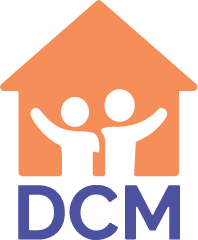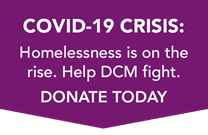OUR PROGRAMS
OUR PROGRAMS
We at Decatur Cooperative Ministry aim to provide every family in our services the tools they need to overcome their immediate housing crisis and obtain/maintain long-term housing stability. To this end, all families enrolled in our programs receive intensive case management and comprehensive supportive services designed to identify and overcome the factors that led them into crisis.
The following programs help us address homelessness from all angles.
Hagar’s House
Hagar’s House offers emergency night shelter and assessment to homeless families with children. The 5-room 30-bed shelter provides safe, comfortable accommodations for up to 90 days. While enrolled, families have access to daily showers, a tech center, laundry facilities, and two meals a day.
Family House
Our Family House program offers up to six months of transitional housing for homeless families with compound barriers to housing stability. We operate four single-family houses and apartments throughout DeKalb County. Families stay in these houses without paying rent or utilities; they are encouraged, however, to save 30% of their income to assist in the transition from homelessness to permanent housing.
Family Success
Our Family Success program offers permanent supportive housing to chronically homeless families (i.e. those with extensive histories of homelessness who have at least one member with a diagnosed disability). These families receive long-term support and services, ensuring lasting housing stability.
Project Take Charge
Through Project Take Charge, DCM offers homeless prevention services to low-income and at-risk seniors, Veterans, and families. Clients with a documentable threat of eviction, foreclosure, or utility disconnection may receive financial assistance to cover rent, mortgage, and utilities. PTC also offers food security to low-income families through the operation of a food pantry and three food cooperatives.
All clients who receive financial assistance attend a three-part financial management course. Culminating with a one-on- one budgeting consultation, the course offers participants the knowledge and skills needed to achieve long-term financial stability.


